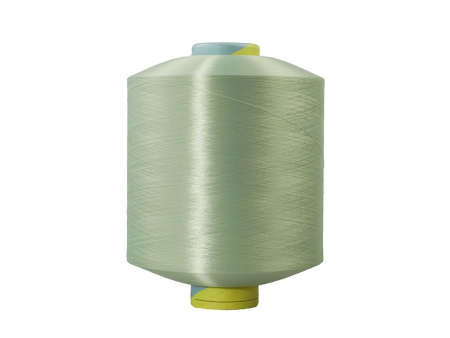Recycled Nylon Yarn
Recycled nylon yarn is an eco-friendly alternative to traditional nylon yarns, prioritizing sustainability and environmental protection. It is produced using renewable resources, such as plants and biomass, which are processed to create durable and strong fibers. This manufacturing approach reduces reliance on limited petrochemical resources, lowers greenhouse gas emissions, and minimizes energy consumption. Recycled nylon yarn offers excellent features like softness, comfort, moisture-wicking, and quick-drying properties, making it suitable for various textile and industrial applications.
Recycled nylon is widely used in the textile industry for processing various types of fabrics. It finds application in products such as ropes, carpets, automotive interiors, sportswear, shoe materials, socks, and outdoor equipment.
| Material | 100% nylon |
| Breaking strength | ≥3.7 |
| Elongation at break | 29±3.0 |
| Applications | Clothing fabrics, socks, shoes, bedding, ribbon, seamless.. |
| Twist | S/Z |
| Specifications | 40D/24F, 50D/24F, 70D/24F, 70D/48F, 140D/48F, 140D/96F... |
| Minimum order quantity | 1kg |
| Colors | White, black, colored |
| Packaging | Cartons |
| Certifications | OEKO-TEX100/ISO9000/ISO45001/ISO14000/GRS |
| Level | AA |
- Cost-saving: The materials required to produce recycled nylon yarn are only half of what is needed for traditional nylon yarn. Lower energy consumption also translates to reduced carbon emissions, contributing to environmental preservation.
- Heat resistance: Recycled nylon materials that possess a high degree of crystalline structure that can generally withstand high temperatures up to 150℃.
- Resilience: Recycled nylon yarn retains its strength even after multiple bending and twist. It maintains its structural integrity, ensuring durability and longevity.
- Safety: Recycled nylon materials are naturally free from toxins and odors. They are also easy to dye and shape, making them convenient for clothing manufacturing processes.
Overall, recycled nylon yarn is a sustainable and environmentally conscious choice. By utilizing renewable resources, it reduces the need for fossil fuels, lessens the strain on ecosystems, and decreases landfill waste. Its exceptional performance and eco-friendly characteristics make it an ideal option for those seeking sustainable textile and industrial solutions.
